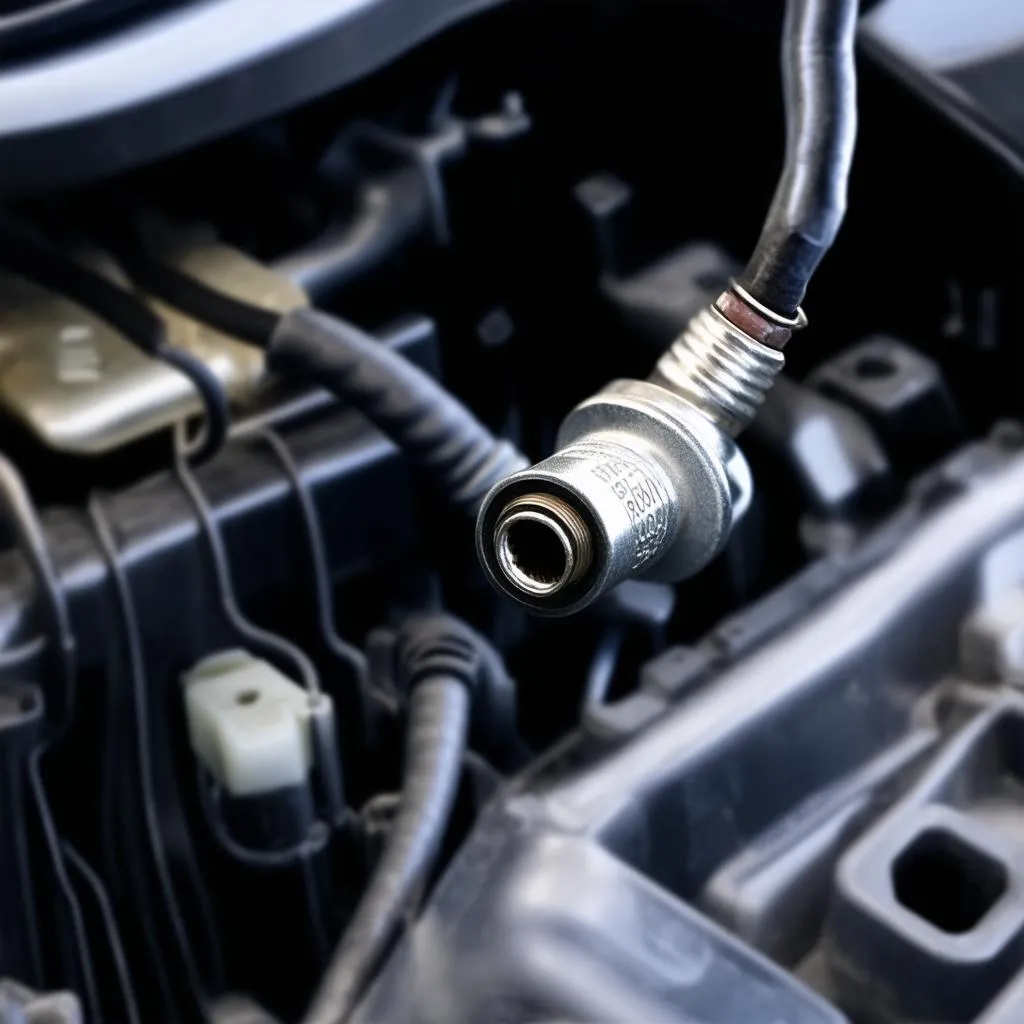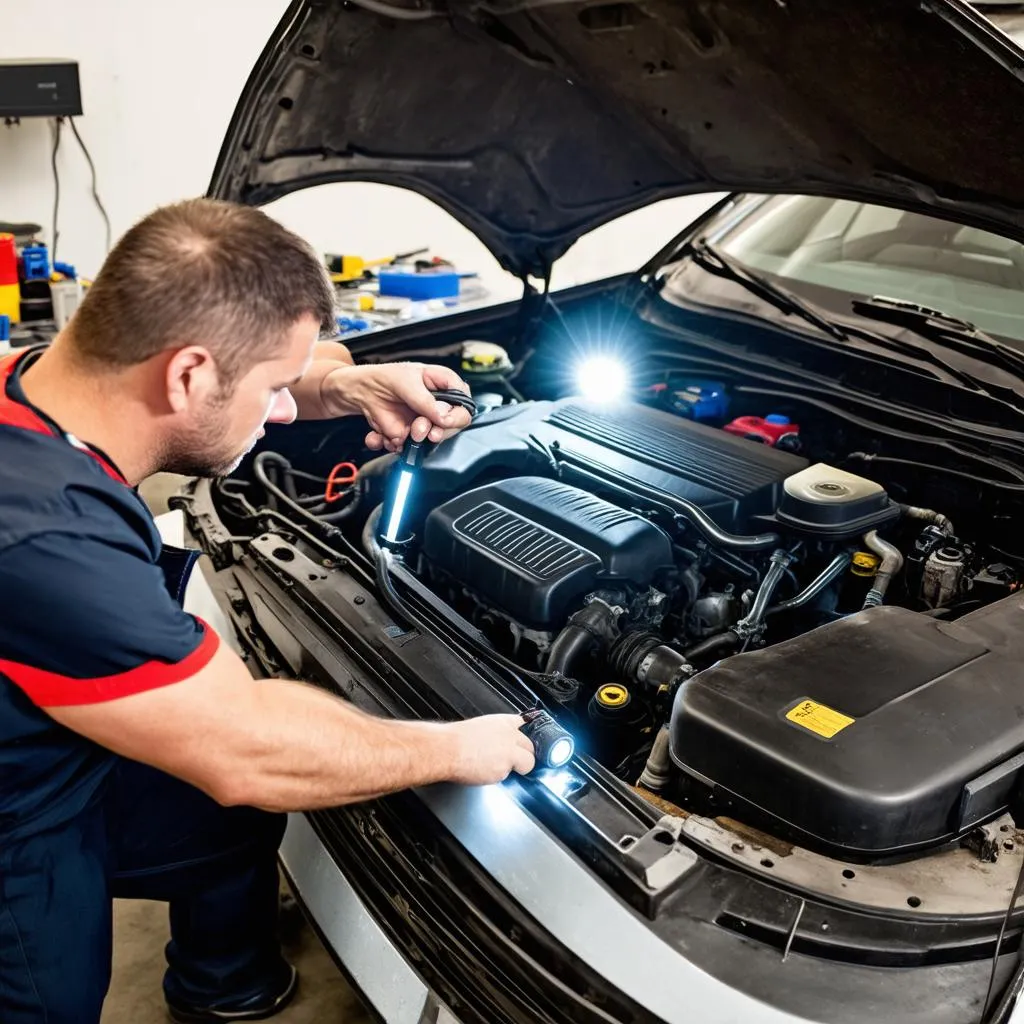Have you ever been cruising down the road, the wind in your hair and your favorite song on the radio, only to be interrupted by a sudden, ominous light flashing on your dashboard? We’ve all been there. It’s like your car is trying to speak to you in a language you don’t understand. And when that language is a cryptic code like “Errore Obd P0130,” it can feel downright alarming.
Don’t worry, you’re not alone. This code is actually more common than you might think, especially for owners of European cars. But what does it really mean, and more importantly, what should you do about it? Let’s break it down.
Understanding “Errore Obd P0130”
In simple terms, “errore OBD P0130” is a trouble code related to your car’s oxygen sensor. Think of your oxygen sensors as the lungs of your engine. They constantly monitor the exhaust gases to determine how much oxygen is present and relay this information to the engine control unit (ECU). This allows the ECU to adjust the air-fuel mixture for optimal performance and fuel efficiency.
The “P0130” specifically points to a problem with the oxygen sensor located before the catalytic converter on Bank 1, Sensor 1 (usually the driver’s side). This sensor is crucial for monitoring emissions and ensuring your car runs smoothly.
What causes this error?
Several factors can trigger this error code, including:
- A faulty oxygen sensor: Like any other car part, oxygen sensors can wear out over time due to constant exposure to high heat and exhaust gases.
- Wiring issues: Damaged, corroded, or loose wiring connecting the sensor to the ECU can disrupt the signal.
- Exhaust leaks: Leaks in the exhaust system before the oxygen sensor can allow unmetered air to enter, confusing the sensor.
- A failing fuel system: Problems with fuel injectors, fuel pressure regulators, or the fuel pump itself can disrupt the air-fuel mixture, impacting the oxygen sensor readings.
The Impact of Ignoring “Errore Obd P0130”
You might be tempted to ignore this warning light, especially if your car seems to be running fine. However, driving with a faulty oxygen sensor can have several negative consequences:
- Decreased fuel economy: A malfunctioning oxygen sensor can lead to a richer fuel mixture, meaning your car burns more fuel than necessary.
- Increased emissions: A rich fuel mixture also results in higher emissions, harming the environment.
- Damage to the catalytic converter: A faulty sensor can eventually damage your catalytic converter, which is an expensive repair.
- Reduced engine performance: Your car might experience rough idling, hesitation, or a lack of power.
Troubleshooting “Errore Obd P0130”
While this article provides general information, remember that each car is different. Consult your car’s manual or a qualified mechanic for specific instructions. Here’s what you can do:
- Verify the code: Use an OBD-II scanner to confirm that the P0130 code is the only one present.
- Inspect the oxygen sensor: Check the sensor for visible damage, loose connections, or excessive carbon buildup.
- Check for exhaust leaks: Inspect the exhaust system for any signs of leaks.
- Inspect the wiring: Examine the wiring harness for damage, corrosion, or loose connections.
FAQs about “Errore Obd P0130”
Q: Can I drive my car with an “errore OBD P0130” code?
Technically, yes, but it’s not recommended. Driving with a faulty oxygen sensor for prolonged periods can damage other components and lead to costlier repairs.
Q: How much does it cost to fix an “errore OBD P0130” code?
The repair cost depends on the root cause. Replacing a faulty oxygen sensor can range from $200 to $400, while fixing wiring issues or exhaust leaks can be cheaper or more expensive depending on the severity.
Q: How often should I replace my oxygen sensors?
Oxygen sensors typically last between 60,000 and 90,000 miles, but it’s best to consult your car’s maintenance schedule for specific recommendations.
 oxygen sensor image
oxygen sensor image
Beyond the Technical: A Holistic Perspective
Interestingly, the sudden appearance of car troubles like this can also be viewed through a different lens. Some believe that cars, like people, have an energy field. When this energy is disrupted, it can manifest as physical problems, including warning lights on your dashboard.
While there’s no scientific evidence to support this, many car owners swear by the power of positive energy. They believe that talking to their cars, keeping them clean and well-maintained, and even playing calming music can positively impact their performance and longevity.
Whether you subscribe to this holistic view or prefer a purely technical approach, one thing is clear: paying attention to your car’s signals is crucial.
 mechanic engine repair
mechanic engine repair
Need Expert Help? We’re Just a Message Away!
Dealing with car troubles can be stressful and confusing, but it doesn’t have to be. If you’re experiencing the dreaded “errore OBD P0130” or any other car issues, our team of expert mechanics is here to help.
We specialize in European car diagnostics and repair, and we’re available 24/7 to answer your questions and provide reliable solutions. Don’t hesitate to contact us on Whatsapp at +84767531508 for immediate assistance.
Remember, a stitch in time saves nine, especially when it comes to your beloved car!
Keep exploring techcarusa.com for more helpful articles and insights on maintaining your European car.